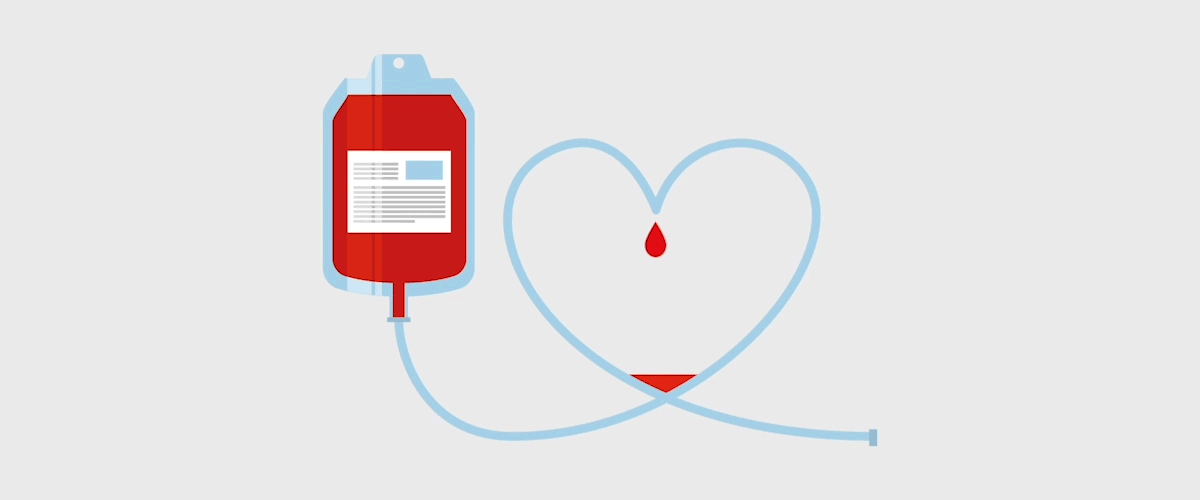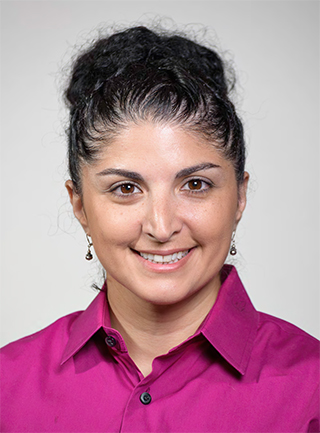What Happens to Your Body When You Donate Blood
The Surprising Benefits of Donating Blood
NewYork-Presbyterian experts explain how donating blood not simply helps someone in need, only also offers health benefits for the donors themselves.

Every two seconds, someone in the U.S. requires a claret transfusion, co-ordinate to the American Red Cantankerous. The benefits of donating blood include helping people injured in accidents, undergoing cancer handling, and battling blood diseases, amidst other reasons.
This year, even so, the United States is facing its worst blood shortage in more than a decade, the Cerise Cantankerous says.
"Altruistic blood saves lives," says Dr. Robert DeSimone, director of transfusion medicine at NewYork-Presbyterian/Weill Cornell Medical Center, who is encouraging people to practice their role and make an appointment to donate.
"For as long as medicine has been around, we've had to rely on the goodness of other people to give us claret when nosotros need it," says Dr. Sarah Vossoughi, the medical director of apheresis and acquaintance director of transfusion medicine and cellular therapy at NewYork-Presbyterian/Columbia University Irving Medical Centre. "We really demand people who want to come and donate. The fact that nosotros can store claret and use it when we need information technology in parts—whether you demand the red cells, the plasma, or the platelets—has been a huge medical advance."
While blood donors don't look to be rewarded for the act of kindness, rolling upwardly your sleeve comes with some surprising health benefits. Here'south what you become when yous give claret:
A Gratuitous Wellness Screening
"Past going to donate blood, y'all are getting a mini-physical," says Dr. DeSimone.
Before y'all are allowed to donate, your vital signs will exist checked to make certain you lot are fit enough for the procedure. This examination might turn up a status that needs medical attention, such as loftier blood pressure or a eye arrhythmia like atrial fibrillation. In addition, you'll be screened for infectious diseases y'all may be unaware of.
"If nosotros detect an consequence with your vital signs or some other wellness issue, nosotros would directly you to become to a physician at that betoken to be checked," Dr. DeSimone says.
The health screening will besides reveal if you have a rare blood type. This information can exist useful if y'all ever face surgery or another medical situation in which a transfusion may be required. Plus, yous'll take the satisfaction of knowing your donation is particularly needed.

Dr. Robert A. DeSimone
A Healthier Heart and Vascular System
Regular claret donation is linked to lower blood force per unit area and a lower risk for heart attacks. "It definitely helps to reduce cardiovascular take a chance factors," says Dr. DeSimone.
What's the connexion? "If your hemoglobin is too high, blood donation helps to lower the viscosity of the blood, which has been associated with the formation of claret clots, heart attacks, and stroke," Dr. DeSimone says. "Interestingly, these benefits are more pregnant in men compared to women. We think maybe it's because women have menstrual cycles, and so they do information technology naturally without donating blood."
People with a condition chosen hereditary hemochromatosis must have blood removed regularly to forbid the buildup of iron. Fortunately, this blood can benefit others.
"These are substantially salubrious patients who are otherwise normal, simply they take a factor mutation where they brand as well much blood, and they make as well much normal blood," Dr. Vossoughi says. "And so nosotros tin use that claret."
The New York Blood Center Hereditary Hemochromatosis Plan allows people with hemochromatosis to donate blood rather than have information technology removed and thrown abroad. "Instead of having to go to a dispensary or go to one of our phlebotomy centers every few months to reduce their blood volume, they can go to any local claret drive," Dr. Vossoughi says. "That blood will so be used for somebody who needs information technology."

Dr. Sarah Vossoughi
A Happier, Longer Life
One claret donation tin can save upwards to three lives, according to Dr. DeSimone. People usually donate because information technology feels good to help others, and altruism and volunteering have been linked to positive wellness outcomes, including a lower run a risk for low and greater longevity.
"Giving blood is a way to engage in the firsthand community and aid people around you," Dr. Vossoughi adds. "People who exercise these types of things and engage in their community in this way tend to have better health and longer lives."
It is as well a way to feel that yous have positively helped during the COVID-nineteen crisis. Donating blood is safe if you lot have had the COVID-nineteen vaccine. Information technology is besides safety if you accept had COVID-19, though y'all must be symptom-free for two weeks and have non had a positive diagnostic test for COVID-19 in the last xiv days, Dr. DeSimone says. If you have any COVID-19 symptoms like a fever or coughing, do not give blood. Donating blood is safe every bit donors are socially-distanced and required to wear a face mask covering their nose and mouth, regardless of vaccination status.
"Creating moments of kindness during a time of need does wonders for your mental health and feeling of well-being," Dr. DeSimone says.
Added Bonus: A Calorie-costless Snack
"For one blood donation, it takes your body about 500 calories to supplant information technology," Dr. Vossoughi says. Thus, the juice and cookies yous're offered after giving claret are a "nada-calorie snack," she says. If you prefer, go for a fancy dessert instead!
Claret Donation Tips
If you lot plan to requite blood, follow these steps:
- Drink plenty of water. Staying hydrated makes it easier to find your veins and prevents you from becoming silly after altruistic, Dr. Vossoughi says.
- Eat well beforehand. Don't skip breakfast, and exist certain to swallow snacks offered to you. "These things will help y'all tolerate the donation well and feel like yourself the rest of the day," she says.
- Exercise earlier donating blood, not afterward. It's OK to go to the gym earlier you donate blood only not so wise later. "We don't want people getting dizzy," Dr. Vossoughi says. "You've basically done your workout for the day once you've donated blood."
- Take iron tablets. The American Red Cross recommends that individuals who donate claret frequently accept an fe supplement or a multivitamin with iron. "More and more, we're recommending that teenage donors in detail take iron, because it's been shown that teenage donors may become iron deficient afterward claret donation," Dr. DeSimone says.
Click hither to detect out where you can schedule an appointment or walk in to donate.
Robert A. DeSimone, Grand.D., is director of transfusion medicine at NewYork-Presbyterian/Weill Cornell Medical Center and an assistant professor of pathology and laboratory medicine at Weill Cornell Medicine. His primary part is to oversee the day-to-twenty-four hour period operations of the blood bank and to make sure patients receive safe and efficacious blood product transfusions. He is currently investigating the effects of claret donor health behaviors on recipient transfusion outcomes.
Sarah Vossoughi, M.D., RN, is the medical manager of apheresis and associate director of transfusion medicine and cellular therapy at NewYork-Presbyterian/Columbia Academy Irving Medical Heart. She is also assistant professor of pathology and cell biology at Columbia University Vagelos College of Physicians and Surgeons. Prior to becoming a physician, Dr. Vossoughi served equally a military officeholder, medical crew director, and trauma nurse in the U.S. Air Force in Republic of korea, Iraq, and Afghanistan, where she evacuated more than 900 troops out of combat zones, earning half-dozen medals. Her research interests include hemovigilance, the processes that keep the blood supply safety, and pediatric transfusion medicine.
Read More than: Health & Wellness, blood, blood donation, blood drive, claret shortage, blood transfusion, coronavirus, COVID-19, COVID-nineteen symptoms, covid-xix vaccine, heart health, hematology, wellness
holifieldyoustwou1977.blogspot.com
Source: https://healthmatters.nyp.org/the-surprising-benefits-of-donating-blood/
0 Response to "What Happens to Your Body When You Donate Blood"
Post a Comment